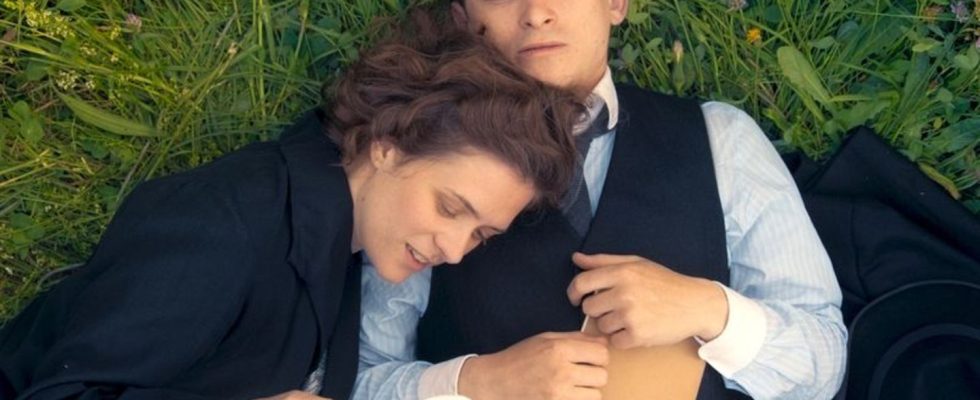TV tip
“Consider me a dream” – mini-series about Kafka
Milena Jesenska (Liv Lisa Fries) and Franz Kafka (Joel Basman) in a scene from “Kafka”. photo
© -/Superfilm/NDR/dpa
Franz Kafka died 100 years ago and left behind some of the most disturbing texts in literary history. A series interweaves the life and work of the writer in the best Kafkaesque sense. Great art.
An employee who wakes up in the morning as a giant vermin, an innocent man who is simply picked up and locked up and doesn’t know why. The frightening and at first glance absurd scenarios that Franz Kafka created with his unique way of putting horror into sober words are still among the greatest works of (German-language) literature 100 years after his death.
Das Erste is now using the 100th anniversary of Kafka’s death on June 3rd of this year as an opportunity to attempt a miniseries to get closer to the man who created such great and mysterious things in his short life (1883-1924). From this Wednesday (March 20th) “Kafka” can be seen in the ARD media library, and next week (March 26th and 27th) on the linear ARD television.
In six episodes, which approach the author through the people who were close to him or influenced him, the life and work of the great poet – who says of himself in a mixture of genuine uncertainty and coquetry “I am – if anything – a very small one “Poet” – brilliantly interwoven.
“In my eyes, he was a master of observation. He never just ‘looked’,” says Kafka actor Joel Basman, who does an excellent job and is pleased to have discovered “a very funny side” in the writer , the German Press Agency. In the series, Kafka is quoted at one point as saying, “Consider me a dream.”
But it wasn’t just Kafka who was such a good, detailed observer – the makers of this series were too. When the conductor on the train in which Kafka’s best friend and estate keeper Max Brod (David Kross) and his wife want to flee Prague from the National Socialists at the last minute answers them with the famous doorkeeper parable (“Before the Law”) , then director David Schalko and screenwriter Daniel Kehlmann show how deeply they have delved into the complex work.
When Kafka, when confronted with his long-term fiancée Felice Bauer (Lia von Blarer), feels like Josef K. in his “trial”, then what is perhaps the most famous first sentence in German-language literature also comes up: “Someone must have slandered Josef K., because without that he had done something bad, he was arrested one morning.”
“Kafka” has become an unusually told, detailed, captivating series – Kafkaesque in the very best sense. The consistently excellent cast also contributes to this. Lars Eidinger alone as the very scary Rainer Maria Rilke is a delight.
The ARD has apparently shown the series – with justifiable pride – to some of the great literary figures of our time. In the press release, none other than Salman Rushdie is quoted as saying: “Kafka’s works are woven into his life with extraordinary skill. The series pays great homage to one of the true giants of 20th century literature.” Ian McEwan said: “Kafka is simply brilliant.”
The ARD series is an extremely successful, but not the only, artistic attempt to devote itself to the phenomenon of Kafka on the 100th anniversary of the writer’s death. In mid-March, the film “The Glory of Life” about the last year of the author’s life and his last love, Dora Diamant, was released in cinemas.
Information about the miniseries

